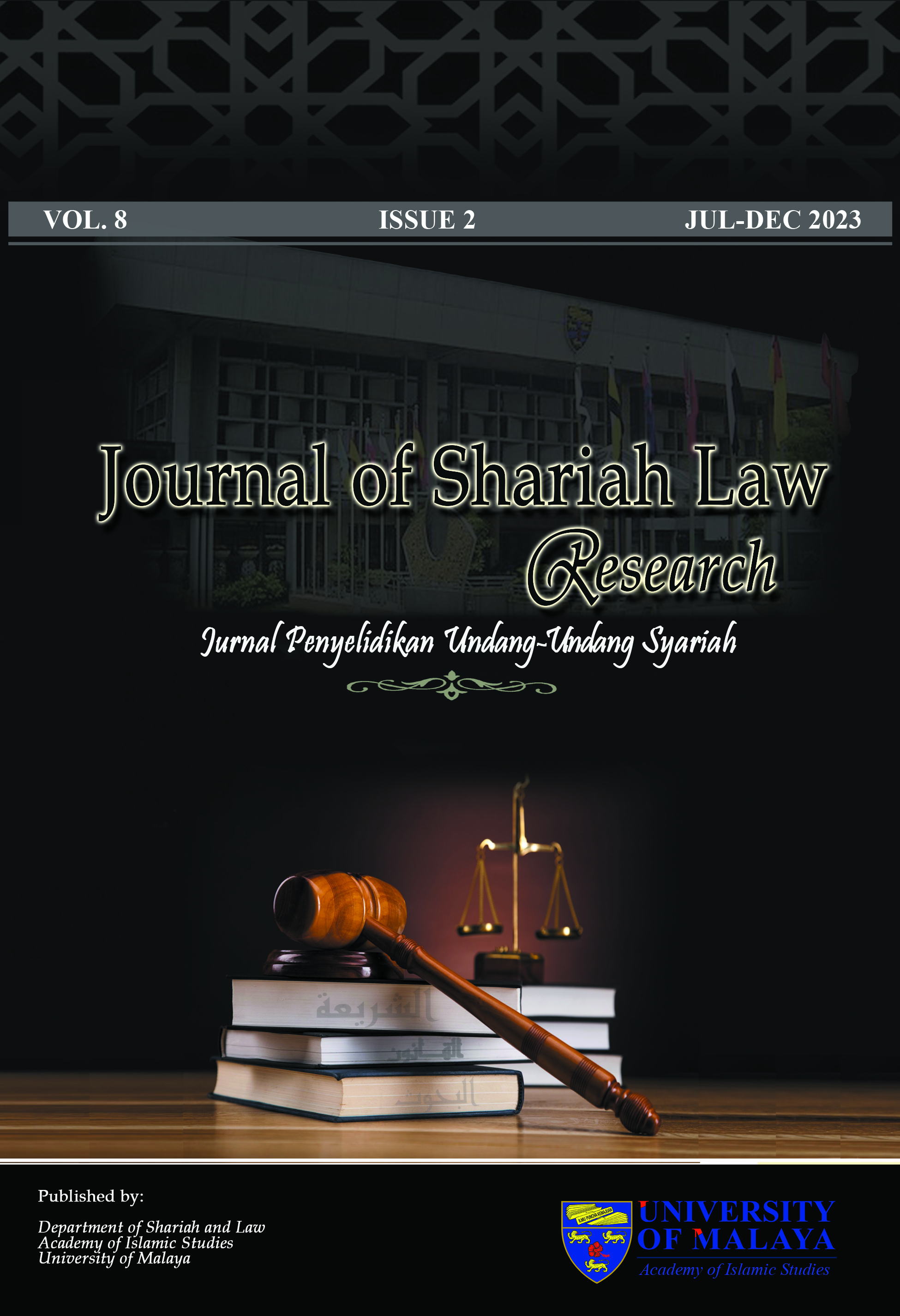THE CONCURRING HOLY WRITS ON ISLAMIC BANKING AND FINANCE (IBF): A COMPARATIVE LEGAL STUDY TOWARDS INTER-FAITH HARMONY ON COMMERCE
Keywords:
Islamic Banking and Finance (IBF), Holy Writs, Inter-Faith Harmony, Islamic CommerceAbstract
The Holy Qur’an, as the first primary source of the Sharia, determine the compatibility, or otherwise, of every product and transaction in the operations of the Islamic Banking and Finance (IBF) system. The same goes to all commercial transactions based on the laws of Christianity and Judaism; they must comply with the Bible and the Torah respectively. Hence, the objective of this article is to demonstrate the basic dos and don’ts of the system as enshrined in the said Holy Writs to enhance smooth operations of Islamic banking and interfaith harmony. The library, also called doctrinal, research was used in this article. The article advances the frontiers of comparative law research having found that the Holy Writs, being the Quran, the Bible and the Old Testament, have the same objective of assuring justice in all commercial dealings thus enhancing harmonious banking and other financial transactions nationally and internationally.
Downloads
References
Abdul-Hamid, M. (2013). Malaysia as a Hub of Islamic Finance: On Choice of Law and Forum for Settlement of Disputers. Islamic Transactions and Finane; Principles and Developments. 12 th Emeritus Prof. Ahmad Ibrahim Memorial Lecture, Wednesday 7th December 2011.
AbduLlahi Yusuf Ali (1934). The Holy Qur’an (English translation and Commentary). Damascus: Dar al-Arabia.
Abu-Dawood (2009). Sunan of Abu-Dawood Hadith, trans. Ahmad Hasan. New Delhi: Kitab Bhavan.
Adnan, M. Z. (2015). The Quran and its Stud. Centre of Qur’anic Research (CQR) Wisma R & D, University of Malaya, Kuala Lumpur.
Al-Baghawī, H. (1997). Tafsīr al-Baghawī, vol. 2. Saudi ‘Arabiya: Dār al-Ṭayyibah.
Al-Bukhari (2000). Sahih Bukhari, trans. Khan, M. M. Chicago: Kazi Publications.
Alkali, Alhaji Umar et al. (2014). Nature and Sources of Nigerian Legal System: An Exorcism of Wrong Notion. International Journal of Business, Economics and Law, vol. 5, 48.
Al-Qaradawi, Y. (1995). The Lawful and Prohibited in Islam, trans. El-helbawy et al. Kuala Lumpur: Islamic Book Trust.
Al-Ṭabarī, M. (2010). Jamī‘ al-Bayān fī Ta’wīl al-Qur’ān, vol. 17. Saudi ‘Arabiya: Mu’assasah al-Risālah.
Andrews, M. (2009). Islamic Finance: An Introduction. UK: Risk Reward Ltd UK.
Azahari, F., (2009). Islamic Banking: Perspectives on Recent Case Development, Malaysian Law Journal, vol. 1, 120.
Bambale, Y.Y. (2007). Islamic Law of Commercial and Industrial Transactions. Lagos: Malthouse Law Books.
Buang, A. H. (2002). Analysis of Current Fatwa in Malaysia. Jurnal Syariah, vol. 10, no. 1, 39-52.
Eyieyie, E. (2011) The Central Bank of Nigeria, Islamic Banking, the Law and Appropriate Regulation of Non - Interest Financial Regulation in Nigeria. Elombah Perpective of World Affairs http://elombah.com/index.php/articles/70v15, accessed on 18 April 2022.
Haron, H., and Azmi, W.N.W. (2005). Marketing Strategies of Islamic Banks: A Lesson From Malaysia, Paper presented, International Seminar on Enhancing Competitive Advantage on Islamic Financial Institutions, Jakarta, 7-8 May.
Ibn Kathīr, I. (1999). Tafsīr Qur’ān al-‘Aẓīm, vol. 3, Saudi ‘Arabiya: Dār al-Ṭayyibah li Nashr wa al-Tawzī‘.
Ibn Majah (2008). Sunan Ibn Majah, trans. Muhammad Talfan Ansari. New Delhi: Kitab Bhavan.
Jawad ‘Alī (2001). al-Mufaṣṣal fī Tarīkh al-‘Arab Qabl al-Islām, vol. 1, 4th ed., Madīnah: Dār al-Saqa’.
Khaf, M. (1996). Profit Distribution in Islamic Banks. Review of Islamic Economic Studies, vol. 3, no. 2, 130.
Muhammad Bashir Alkali & Ahmad H. Buang (2015). Challenges in Implementing Islamic Banking and Finance in Nigeria: A Legal Insight, Jurnal Syariah, vol. 23, no. 1, 141-166.
Muslim (2007). Sahih Muslim, 1st ed. Dar-us-Salam Publications Inc., Book 30.
Muslim (2008). Sahih Muslim, trans. Muhammad Tafal Ansari (2008). New Delhi: Kitab Bhavan.
New American Standard Bible (1995). The Holy Bible. USA: Lockman Foundation.
Obiyo, O.C. (2008). Islamic financing/banking in the Nigerian Economy: Is it workable? A review of Related Issues and Prospects. International Journal of Islamic and Middle Eastern Finance and Management, vol. 1, no. 3, 227.
Old Testament (1995). The Holy Bible. USA: Lockman Foundation.
Sanusi L. Sanusi (2011). ‘Islamic Finance in Nigeria: Issues and Challenges,’ a lecture delivered at Markfield Institute of Higher Education, UK. June 17, 2011
Siddiqi, N. (2006). Islamic Banking and Finance in Theory and Practice: A Survey of State of the Art, Islamic Economic Studies, vol. 13, no. 2, 4.
Thambiah, S., et al, (2010). Conceptual Framework for the Adoption of Islamic Retail Banking Services in Malaysia. Journal of Electronic Banking Systems, 59.





